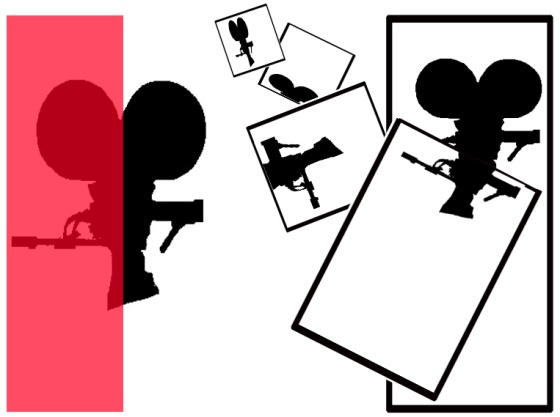International Symposium
Cinema and Representation
December 5 to 7, 2013
CES-Lisbon, Picoas Plaza, Rua do Viriato, 13, Lj. 117/118

Abstract
The issue of representation has been discussed by many disciplinary fields, from philosophy to theater, history, sociology, political sciences, psychology, anthropology and cultural studies, to mention some of the most productive ones in terms of critical thinking and debate.
The study of the relation between cinema and representation is particularly inspiring in a period where crises of economy, freedom, justice and peace dominate the global scene. From the beginning, movies have been contributed drastically to increase the conscience of the historicity of gestures and the ways of their transmission. The capacity of cinema to accelerate history and to represent large social structures have been studied particularly in cases of opinion manipulation, construction of nationalistic images and political legitimation, historical revisionism, marketing of big industries, reputation making for regions and states, social distinction mechanisms, etc.
Representation and representativeness are common topics for debate in fields like ethnicity and gender, regulation of media or perception of governance rationalities. Cinema follows and determines changes in language and discourse, in violence standards, sexual behavior, body use and language, habitus, group and individual perceptions, among others.
The concept analysis should not be limited to these topics and to the common idea of citizenship, the representation mechanisms and their relation with the institutions. Representation is a matter of actors and therefore its meaning and nature should be taken in a broader sense. Cinema has also the capacity to represent metaphors, to interact in different ways with perception. Representation works as a fiction game, conditioning the feeling of truthfulness, the imaginative engagement and the culture of each of the spectators. Consequently, to discuss representation in cinema involves questioning problems like narration and interpretation and the relations between film and language.
The symposium aims to be a forum for researchers coming from Portugal, Spain, France, Italy and Ibero-America where the results of their work concerning the above mentioned thematic will be presented and discussed. The contributions came from different disciplines, distinct methodologies and perspectives.
This event will be the fourth international symposium held at CES under the title of “Cinema and...", after 'Cinema and Cities' (2010), 'Cinema and Author' (2011) - which already have resulted in associated publications with CES – and the symposium 'Cinema and Religions' (2012). The event is organized in collaboration with the Research Group HUM-870 “Cine y Letras” – Trans disciplinary Studies in Cinematographic Art from the University of Granada will congregate as well researchers from the University of Cadiz, University Carlos III-Madrid, Université Paris XI, Università della Basilicata (Italy) and the New University of Lisbon.
Registration fees
Standard: 15,00€
Degree, Master and PhD students: 10,00€
CES students and research students: free
Certificates of attendance will be delivered at the end of the symposium
Organization: Research group Cities, Cultures, and Architecture (CCArq) and HUM-870 research Group on Cinema and Humanities. Transdiciplinary Studies in the Cinematographic Art (University of Granada)
Coordination: João Mascarenhas Mateus (CES) and Francisco Salvador Ventura (University of Granada)
Scientific Committee: Carlos Vargas (Nova University of Lisbon, Gloria Camarero Gómez (University Carlos III de Madrid), Jezabel Gutiérrez Pequeño (University Paris XI), María Dolores Pérez Murillo (University of Cadiz), Óscar Lapeña Marchena (University of Cadiz)

